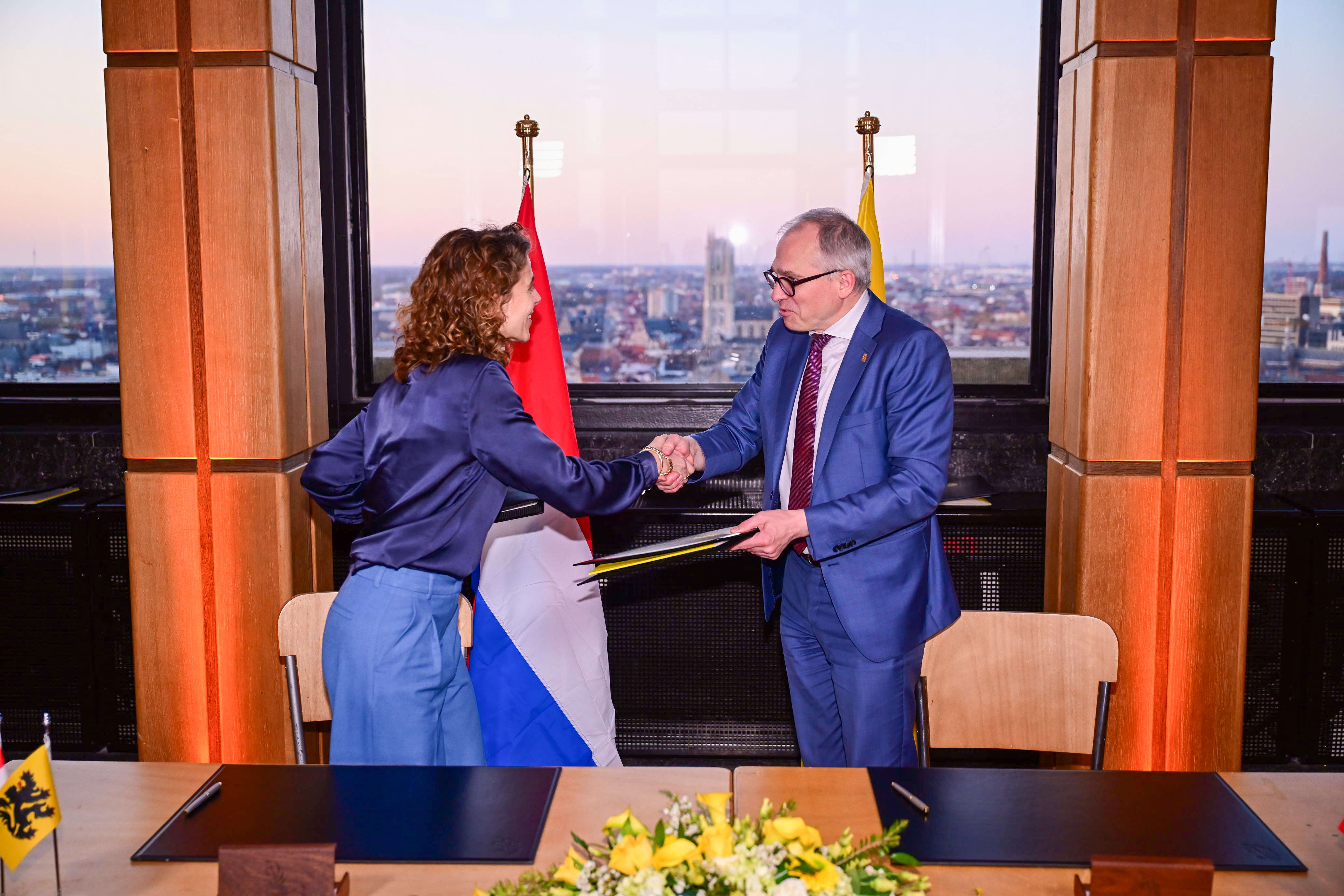Flemish-Dutch summit concludes with several agreements, despite absence of Dutch PM

Dutch prime minister Dick Schoof was unable to attend the seventh biennal Flemish-Dutch summit in Ghent on Tuesday. Despite his absence, the summit was a success, said Flemish minister-president Matthias Diependaele.
The cause of Schoof's absence is an incident involving Asylum and Migration minister Marjolein Faber, who refused to put her signature on ribbons for volunteers who have worked with asylum seekers and refugees.
Afterwards, Faber refused to apologise. The opposition questioned the unity of Schoof's government and wanted to debate the issue, which is why the Dutch prime minister was forced to stay in the Netherlands.
"He has been summoned to parliament and that has priority. We fully understand that," said minister-president Diependaele at the start of the summit. Schoof was replaced by Sophie Hermans, minister for climate and green growth.
Successful summit
Despite Schoof's absence, Diependaele believes the summit was a success. "With this summit, we are taking steps forward in dossiers that directly affect our economy and living environment," the minister-president said.
The two partners reached agreements on nitrogen, policy coordination, knowledge sharing and joint monitoring. Ties have also been strengthened around cooperation within North Sea Port, the cross-border port that stretches from Vlissingen to Ghent.
Flanders and the Netherlands also discussed shared challenges around European competitiveness, in light of the Clean Industrial Deal and the European Competitiveness Compass. "In this, the border regions remain an economic engine, still too often held back by practical and legal barriers. That is why cooperation on the ground is being further stepped up."
The Flemish-Dutch summit has been an established, biennial tradition since 2011 and has become the forum for strategic consultations between the two governments.
#FlandersNewsService | © BELGA PHOTO JONAS ROOSENS
Related news
